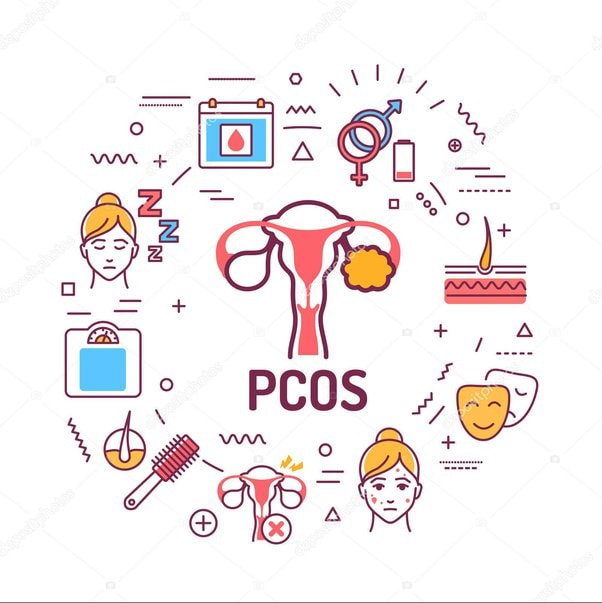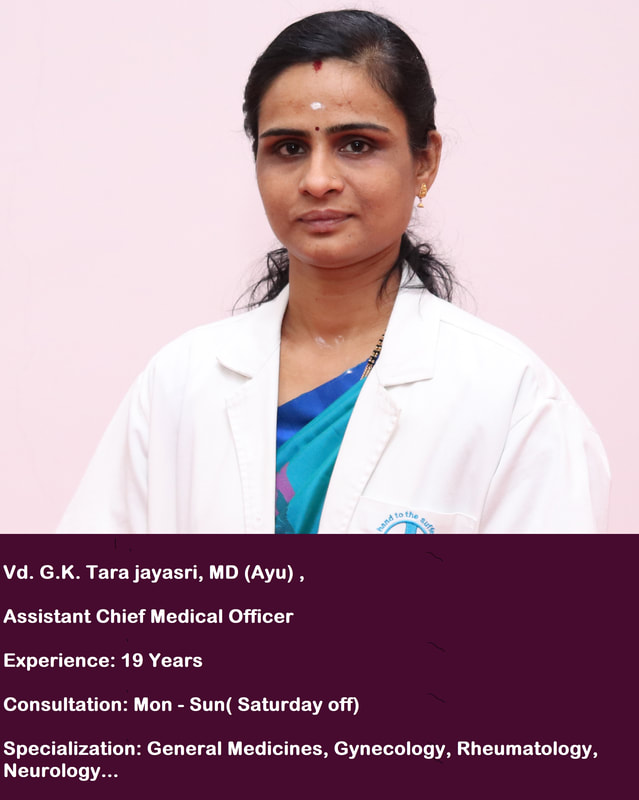No more worries about PCOD

Polycystic ovarian syndrome (PCOS) is a female endocrine disorder occurring during the reproductive age and affecting approximately 5-12% of the female population. It is commonly accompanied by obesity and menstrual irregularity, and can lead to infertility. The root cause of this condition can be either a lifestyle habit or genetic. Obesity can be either a cause or an effect of PCOS. Ultimately, PCOS is an emotionally distressing problem for women with various physical and physiological consequences.
In Ayurveda, PCOS comes under the chapter of Yoni Vyapat (utero vaginal disorders) and is one of 20 diseases in that section.
Symptoms:
Irregular periods or Skipped periods,Heavy bleeding ,Mood swings,Cysts in Ovary,Obesity,Acne,Scanty scalp hair or loss of hair,Hair growth (hirsutism) Excessive hair on the face and body,Insulin resistance leading to Diabetes,Darkening of the skin,Headaches.
Pathology in ayurveda:
In Ayurveda, PCOD is caused due to an imbalance of any of the two doshas – Pitta (Fire) and Kapha (Water). Aggravated Pitta causes contamination of the dhatus or tissues like blood and plasma. This causes a buildup of toxins or ama in the body.
In PCOS patients, these toxins get accumulated in the channels of the mind, leading to an imbalance of hormones secreted by the pituitary gland. This results in an imbalance of female hormones and causes the formation of ovarian cysts which is nothing but a collection of fluids within the ovary, anovulatory periods or periods with no ovulation, etc.
Cause of PCOS:
PCOS occurs when a hormonal imbalance affects the follicular growth during the ovarian cycle. Instead of bursting and releasing an egg, the affected ovarian follicle remains in the ovary. The follicle then forms into cysts, and during each ovarian cycle multiple new cysts can arise. ‘Poly’ means many, hence the name: polycystic ovarian syndrome.
Improper diet and lifestyle, including mental stress and lack of physical exercise, as well as prolonged and excessive consumption of hormonal contraceptive pills are major causes of PCOS.
PCOD – How Ayurveda Treatment Can Help?Panchakarma is the first line of treatment for PCOS. An ayurvedic specialist prepares a personalized program after a detailed consultation.Panchakarma treats the root cause by eradicating toxins from the reproductive system: The uterus, ovaries, fallopian tubes and the vagina are cleansed, and hormones are balanced. Some of the main procedures include virechana (therapeutic purgation), uttar vasti (uterovaginal enema) and vasti (colonic enema).
Single herbs such as Triphala (Which is rich in vitamin C- a powerful natural antioxidant that helps in reducing inflammation by reducing free radicals), Kanchanar, Trikatu, Guggul, Dashamool, Shatavari( which helps in controlling high levels of insulin due to PCOS, due to its phytoestrogen or natural plant-based estrogen levels), Shatapushpa (Which helps to grow eggs naturally and helps to split follicles naturally), Guduchi (Which helps in revitalizing body tissues and lowering insulin resistance),Aloe Vera(it helps in regularizing menstrual cycles and promote normal menstruation. It also normalizes hormonal imbalance),Varuna, Pippali, Punarvana, Chitraka, Shunthi helps to manage PCOS .
Diet recommendation for PCOD:
- Avoid all sugary foods and artificial sweeteners.
- Reduce salt intake during menstruation
- Increase the consumption of fruit & vegetables.
- Choose whole grains, which contain all parts of the grain.
- Limit the intake of saturated fats that are found in red meat, chicken, commercially prepared snack foods and deep fried food.
Lifestyle Recommendations for PCOS:
- Manage stress and anxiety. Reducing stress can help balance your hormones.
- Stay well hydrated by drinking 1.5 – 2 litres of filtered water daily.
- Perform moderate exercise of 45 min daily.


